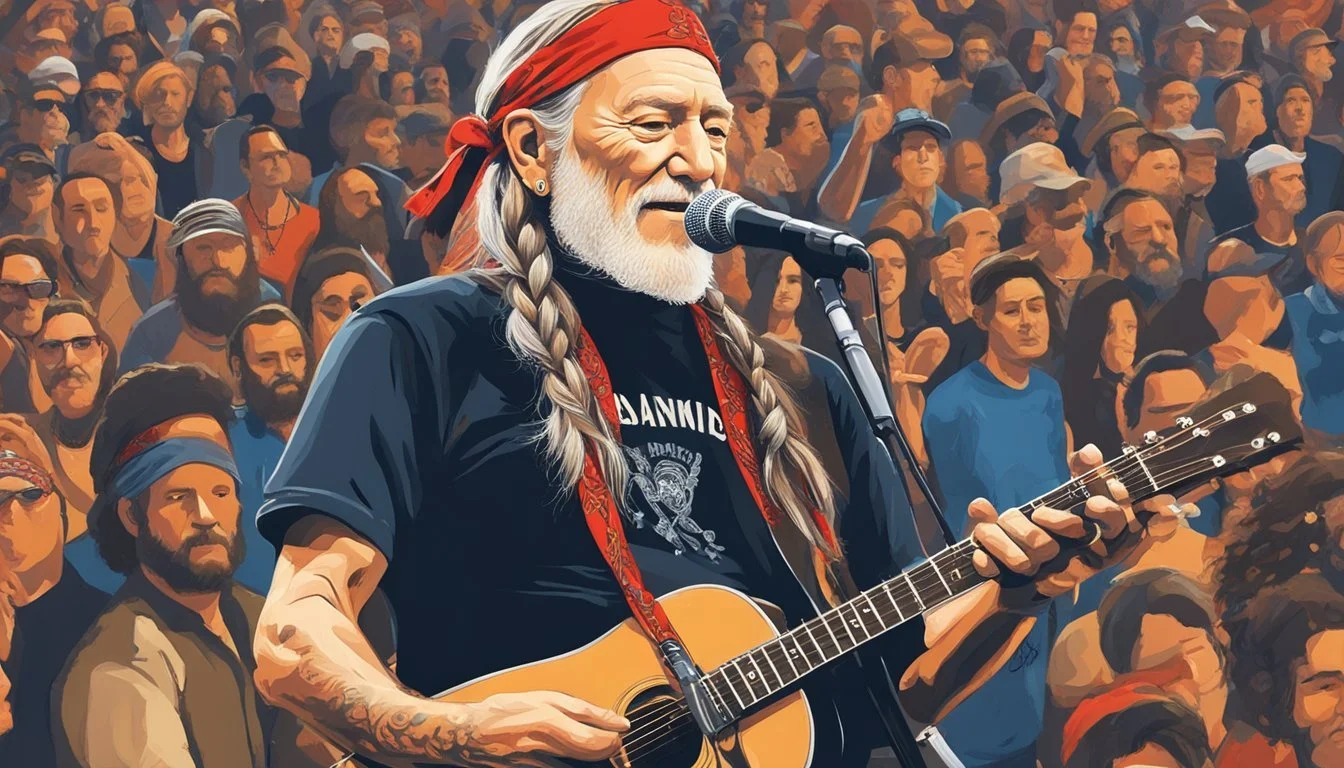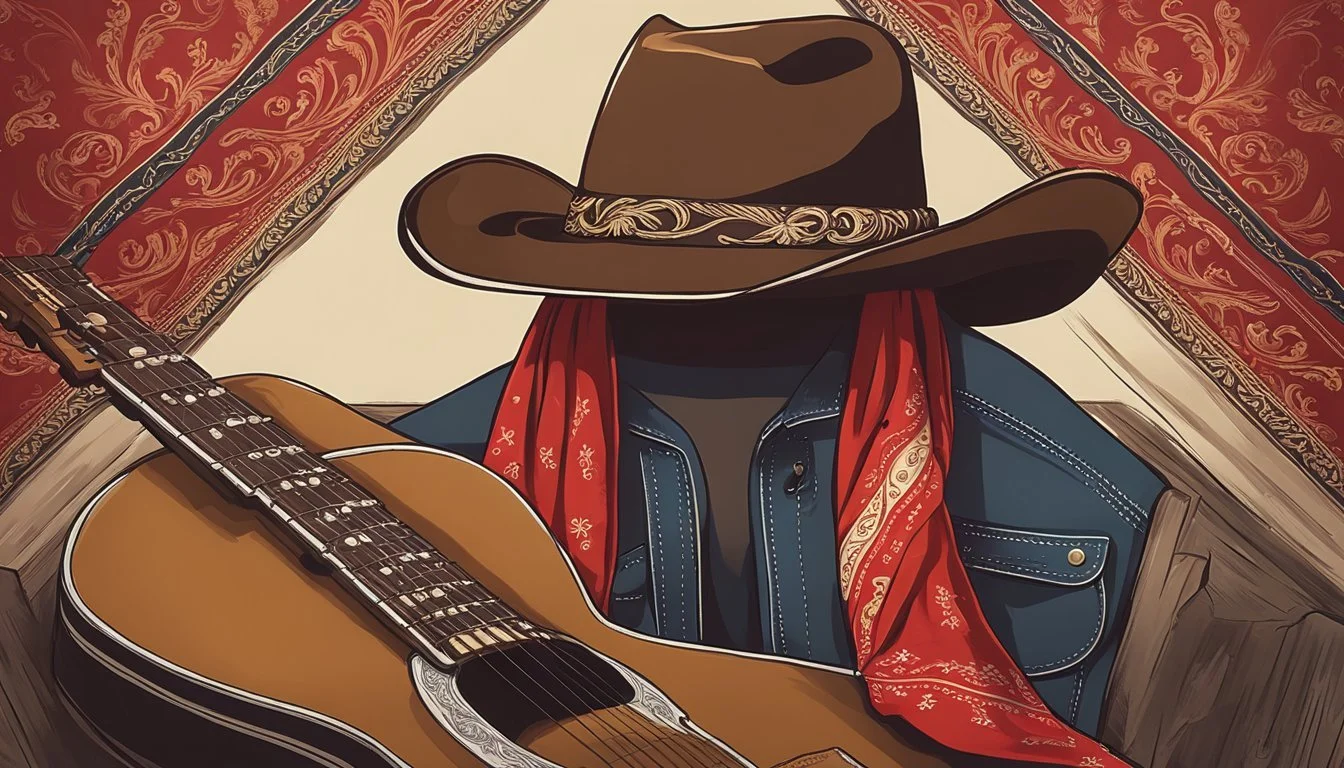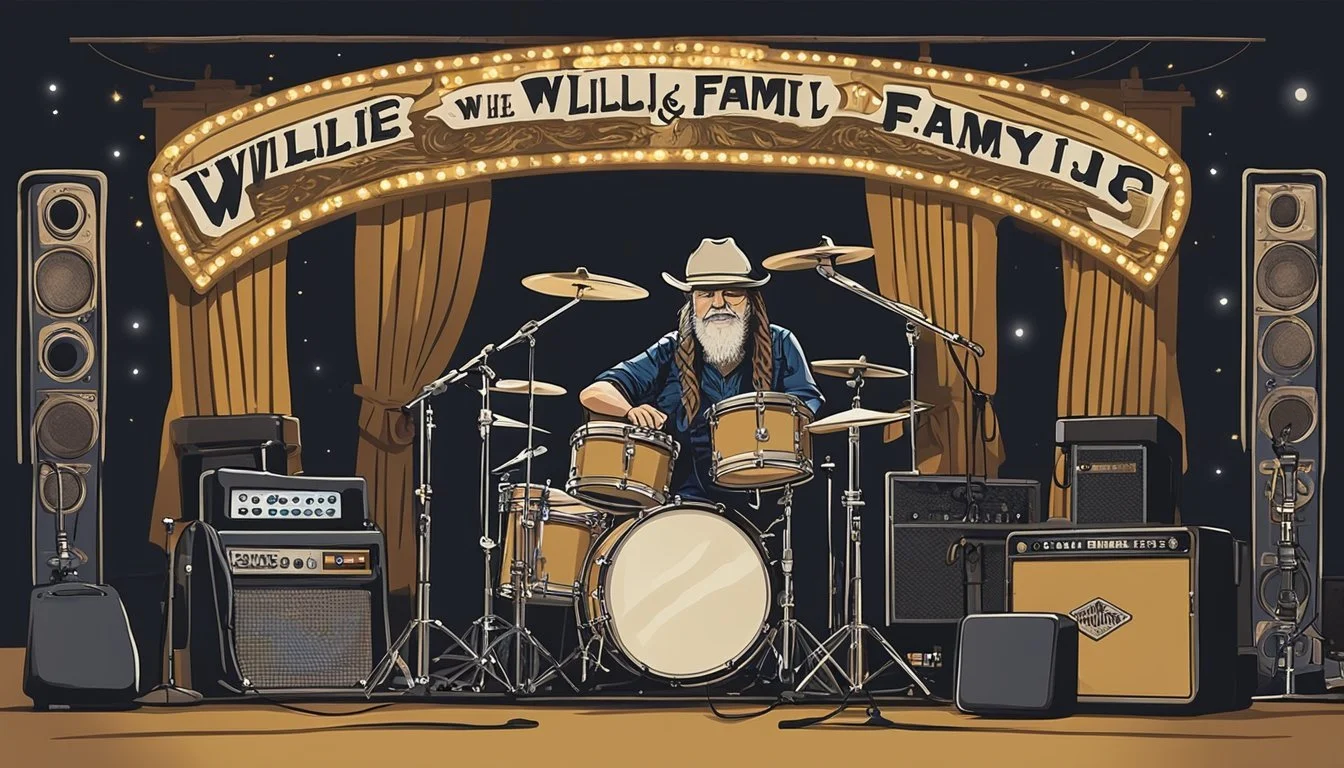6 Ways "Willie Nelson & Family" Explores Willie's Public Image
A Deep Dive into the Country Legend's Persona
Willie Nelson's enduring influence on American music and culture has been captured in numerous documentaries and interviews over the decades. The recently released "Willie Nelson & Family" docuseries on Paramount+ offers viewers a comprehensive look at the country music icon's life and career.
This five-part series explores various aspects of Willie Nelson's public image, from his humble beginnings to his status as a legendary singer-songwriter. The documentary features rare footage and interviews with fellow musicians, providing insight into how Nelson's portrayal in the media has evolved throughout his 60-year musical journey.
1) The Outlaw Image
Willie Nelson's transformation from clean-cut Nashville songwriter to iconic outlaw country figure is a central focus of "Willie Nelson & Family." The documentary series explores how Nelson cultivated his rebellious persona throughout his career.
Nelson's long hair, bandanas, and casual attire became visual symbols of his break from Nashville's polished country music norms. His move back to Texas in the early 1970s marked a pivotal moment in embracing a more authentic, rough-edged sound and image.
The series highlights Nelson's role in shaping the outlaw country movement alongside artists like Waylon Jennings. This subgenre challenged the Nashville establishment with its raw, unvarnished approach to songwriting and performance.
Nelson's outlaw image extended beyond music to his lifestyle choices and advocacy. The documentary touches on his well-known marijuana use and support for its legalization, which further solidified his countercultural status.
Through rare footage and interviews, "Willie Nelson & Family" paints a picture of an artist who redefined country music's boundaries and public perception. Nelson's outlaw persona became an integral part of his enduring appeal and cultural impact.
2) The Braided Hair Style
Willie Nelson's iconic braided hairstyle became a defining element of his public image. The docuseries "Willie Nelson & Family" explores the evolution of this distinctive look.
Nelson adopted his signature braids in the 1970s, coinciding with his move to Austin and the rise of outlaw country. This hairstyle set him apart from the clean-cut Nashville image prevalent at the time.
The braids became more than just a fashion choice; they symbolized Nelson's rebellious spirit and nonconformist attitude. They reflected his independent approach to music and life.
Over the years, Nelson's braids have grown longer and grayer, mirroring his enduring career. They've become an inseparable part of his persona, instantly recognizable to fans worldwide.
The documentary showcases how Nelson's braided look has remained consistent through decades of changing musical trends and fashion styles. This continuity has helped cement his status as a cultural icon.
3) The Iconic Red Bandana
Willie Nelson's red bandana has become an inseparable part of his public image. The "Willie Nelson & Family" docuseries explores the origins and significance of this iconic accessory.
The series reveals how Nelson adopted the bandana in the 1970s as a practical solution to keep sweat out of his eyes during performances. What began as a functional item soon transformed into a signature look.
Interviews with fellow musicians and industry insiders highlight how the bandana became synonymous with Nelson's outlaw country persona. It symbolized his rebellious spirit and departure from the polished Nashville image.
Archival footage showcases the evolution of Nelson's appearance, with the red bandana featuring prominently in concerts, album covers, and public appearances. The documentary examines how this simple accessory helped create a instantly recognizable visual brand.
The series also touches on the cultural impact of Nelson's bandana, inspiring fans and fellow artists alike. It became a symbol of authenticity and individuality in country music.
4) Collaboration with Waylon Jennings
Willie Nelson's partnership with Waylon Jennings revolutionized country music through the Outlaw Country movement. Their collaboration challenged industry norms and reshaped the genre's sound and image.
The duo's album "Wanted! The Outlaws" became a landmark release in 1976. It featured both artists alongside Tompall Glaser and Jessi Colter, showcasing their rebellious spirit and musical synergy.
Nelson and Jennings continued to work together throughout their careers. They released several duet albums, including "Waylon & Willie" in 1978, which produced the hit single "Mammas Don't Let Your Babies Grow Up to Be Cowboys."
Their friendship extended beyond music, with both artists supporting each other through personal and professional challenges. This bond strengthened their collaborative efforts and added authenticity to their performances.
The "Willie Nelson & Family" docuseries likely explores the impact of this collaboration on Nelson's public image. It showcases how their partnership helped establish Nelson as a countercultural icon and influential figure in American music.
5) Role in 'Honeysuckle Rose'
Willie Nelson's role in the 1980 film 'Honeysuckle Rose' further cemented his public image as a country music icon. The movie showcased Nelson's acting abilities alongside his musical talents.
In the film, Nelson played Buck Bonham, a touring country singer. This character closely mirrored Nelson's real-life persona, blurring the lines between fiction and reality for audiences.
The soundtrack for 'Honeysuckle Rose' became a significant part of Nelson's musical legacy. It featured the hit song "On the Road Again," which became one of Willie's most recognizable tunes.
The film and its soundtrack helped introduce Nelson to a broader audience beyond country music fans. It showcased his versatility as both an actor and musician, enhancing his reputation as a multi-talented artist.
'Honeysuckle Rose' presented Nelson as a relatable figure, reinforcing his image as an everyday man who happened to be a talented musician. This portrayal resonated with viewers and contributed to his enduring popularity.
6) Advocacy for Legalizing Marijuana
Willie Nelson's longtime support for marijuana legalization features prominently in the "Willie Nelson & Family" docuseries. The series explores his influential role in the movement to end cannabis prohibition.
Nelson's advocacy has been a defining aspect of his public image for decades. His outspoken stance on the issue has cemented his status as an "outlaw" figure in American culture.
The documentary delves into Nelson's personal experiences with cannabis, including his multiple arrests for marijuana possession. These incidents have only strengthened his resolve to push for legalization.
In 2015, Nelson took his advocacy a step further by launching Willie's Reserve, his own cannabis brand. This business venture demonstrates his commitment to normalizing and professionalizing the marijuana industry.
The series showcases how Nelson's advocacy has evolved over time, from counterculture symbol to respected voice in policy discussions. It highlights his efforts to educate the public about the potential benefits of cannabis legalization.
The Evolution of Willie Nelson's Image
Willie Nelson's public persona has undergone a remarkable transformation over the decades. His journey from a clean-cut Nashville songwriter to an iconic outlaw country figure has captivated audiences and shaped American music culture.
From Outlaw to Icon
In the 1960s, Willie Nelson struggled to fit the polished Nashville sound. He grew his hair long, embraced his roots, and helped pioneer the outlaw country movement. This shift in image coincided with his move back to Texas and the release of groundbreaking albums like "Shotgun Willie" and "Red Headed Stranger."
Nelson's signature braids, bandana, and well-worn guitar "Trigger" became instantly recognizable symbols. His relaxed style and uncompromising approach to music endeared him to fans across generations.
Cultural Impact and Recognition
Willie Nelson's influence extends far beyond music. He's become a cultural touchstone, known for his activism, philanthropy, and advocacy for farmers and environmental causes. His annual Farm Aid concerts have raised millions for family farmers since 1985.
Nelson's crossover appeal has led to collaborations with artists from diverse genres. He's received numerous awards, including Grammys, Country Music Association honors, and Kennedy Center recognition. In 2015, the Library of Congress awarded Nelson the Gershwin Prize for Popular Song, cementing his status as an American musical legend.
Personal Life Versus Public Persona
Willie Nelson's public image often contrasts with his private life. The docuseries explores the balance he strikes between his family commitments and fame, as well as his philanthropic efforts.
Balancing Family and Fame
Willie Nelson's dedication to his family shines through in "Willie Nelson & Family." Despite his busy touring schedule, he prioritizes time with loved ones. The series reveals how he maintains close relationships with his children and grandchildren.
Willie's home life in Texas serves as a sanctuary from the spotlight. He's shown engaging in everyday activities like playing chess and sharing meals with family members.
The docuseries also touches on the challenges fame brings to family life. It addresses how Willie's career impacted his marriages and relationships over the years.
Philanthropy and Public Perception
Willie Nelson's charitable work has significantly shaped his public image. The series highlights his involvement in Farm Aid, an organization he co-founded in 1985 to support American farmers.
His advocacy for marijuana legalization is also explored. The docuseries shows how this stance has influenced public opinion of Willie over time.
Willie's environmental activism receives attention. His use of biodiesel fuel for his tour bus demonstrates his commitment to sustainability.
The series portrays Willie as a down-to-earth figure despite his fame. His interactions with fans and willingness to support various causes contribute to his reputation as a humanitarian.






